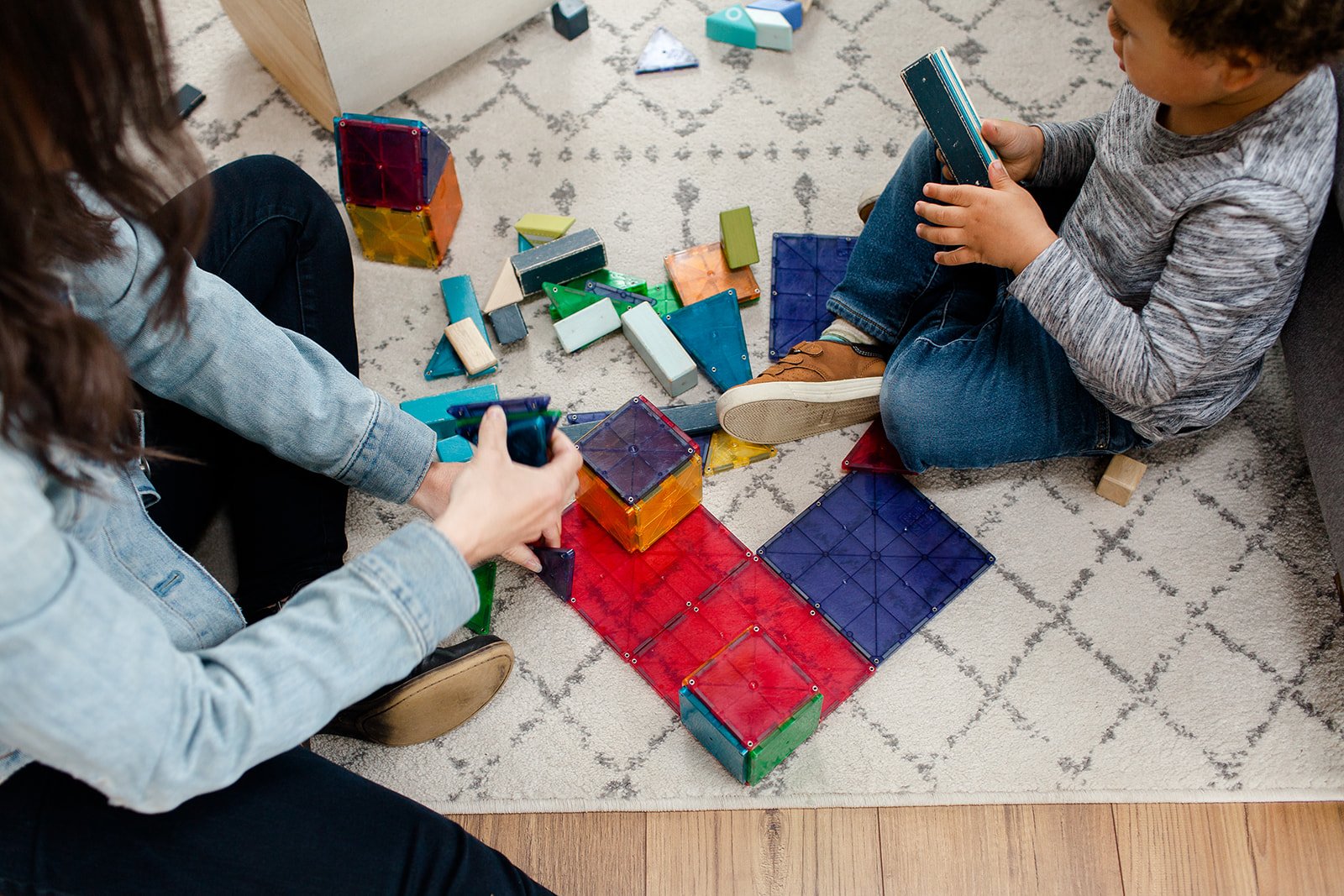Catching our Reflections in the Lives of Our Children
Parenting can sometimes feel like living in a funhouse with trick mirrors all around us. In a moment of shock, we look at our children’s lives and see our reflection—and it’s not pretty. The distorted image in the mirror reveals the way the sin of our own hearts and lives has been imitated by our children.
The past months of restrictions have provided me with many of these moments. Without the regular activities that take us out of the house, it’s just me and them—and I’m catching my reflection in discouraging ways.
What can we do when confronted with the sin of our children, sin that turns out to be ours as well? The discouragement can be crippling, preventing us from seeing any fruitful way forward. Even in the midst of this discouragement, God invites us to move forward in hope, pressing into the gospel of grace.
Give Thanks
My most natural reaction to my children’s sin is anger, impatience, and exasperation. “Again?!” I complain, “Why do I have to deal with this?” But, as Paul Tripp communicates so insightfully, “every moment of correction or discipline is an opportunity” to communicate to our children their need for grace and Jesus’ perfect provision.[1] With this perspective, we can meet our frustrations with thankfulness. Of course, moving from our natural reactions to a posture of thanksgiving is neither easy nor automatic. We need to ask the Father to work in our hearts through his Spirit so that we can see and rejoice in opportunities to preach the gospel to our children, however inconvenient and difficult those times may be.
And in that moment of correction or discipline, when we see our own sin mirrored in our children, we can also give thanks that God has not allowed us to continue to sin blindly. While these moments of recognition are painful, our gracious God uses those situations to confront us and give us an opportunity to turn back to him.
Repent
Every day, we come face to face with our children’s hearts and actions, and we are called to discern and discipline. Here, Jesus’ words to the pharisees are relevant: “Why do you see the speck that is in your brother's eye, but do not notice the log that is in your own eye?...You hypocrite, first take the log out of your own eye, and then you will see clearly to take the speck out of your brother's eye” (Matt. 7:3,5). I’m not sure anyone is in the business of looking at specks in others’ eyes more than parents. So, we need to heed Jesus’ instruction: deal with our sin first. Otherwise, we risk misjudging our children. We risk downplaying the seriousness of our sin—a plank—and increasing the seriousness of their sin. Our sin reflecting in their lives can look distortedly larger, like a reflection in a funhouse mirror.
Repentance always means coming to God in humble confession; sometimes it means going to our children as well. If we’ve sinned against them, we need to ask for forgiveness. If we’ve sinned in their presence, we can communicate with them that what we did was wrong. We can invite them to confess their own sin, bringing them to Jesus. When our children see that our lives are marked by humble confession and repentance, space is cleared for them to imitate willingly and sincerely.
Empathize
The battle against sin is hard. Day in, day out, just as I think I have gained ground, I fail so miserably that it can be hard to get out of bed the next morning. I know this about myself—what about my children?
I also know how valuable a trusted friend can be in my battle against sin. Having someone who knows me intimately, who cheers me on in my successes, encourages me in my failures, and lovingly confronts me—what a precious gift![2] I value this for myself—what about for my children?
What a gift it would be for our children if we empathized with them. What if we acknowledged that maturing in faithfulness requires endurance and courage? What if they knew that we are with them, not against them, in their battle against sin? By communicating in age-appropriate ways that we understand because we face the same types of temptations they do, we more clearly imitate Jesus. We can point our children to Jesus—the “one who in every respect has been tempted as we are, yet without sin”—reminding them that he has gone before us, living a life of faithful obedience (Heb. 4:15).
Hope
Even after we give thanks, repent, and show empathy, we can still feel overwhelmed by the reality of the battle with sin. We are powerless on our own to put off the sin that has entrenched itself in our hearts—how much more powerless are we to do the same for our children?
But our transformation, and the transformation of our kids, does not depend on our sufficiency. Our transformation only and ever depends on the power of God, who has worked graciously and mightily, not only to forgive our sin through Jesus, but also to make us alive by the power of his Spirit. The same Spirit who raised Jesus from the dead—what greater power can we imagine!—even now works in our hearts. Even when all seems dark, the Spirit hovers, ready to bring new life.[3]
[1] Tripp, Paul. Parenting. Crossway, Illinois. 2016.
[2] Proverbs 27:17
[3] Genesis 1:2










